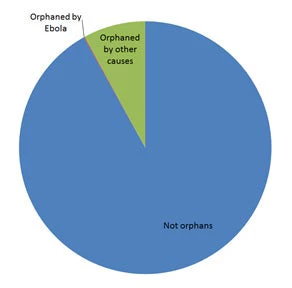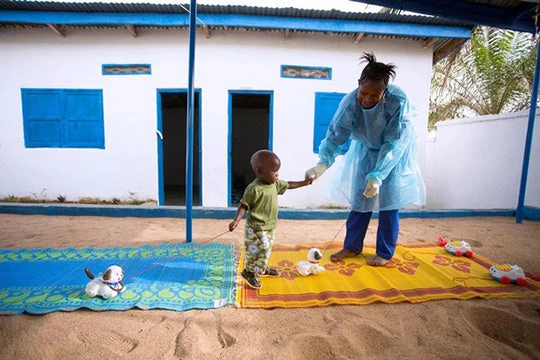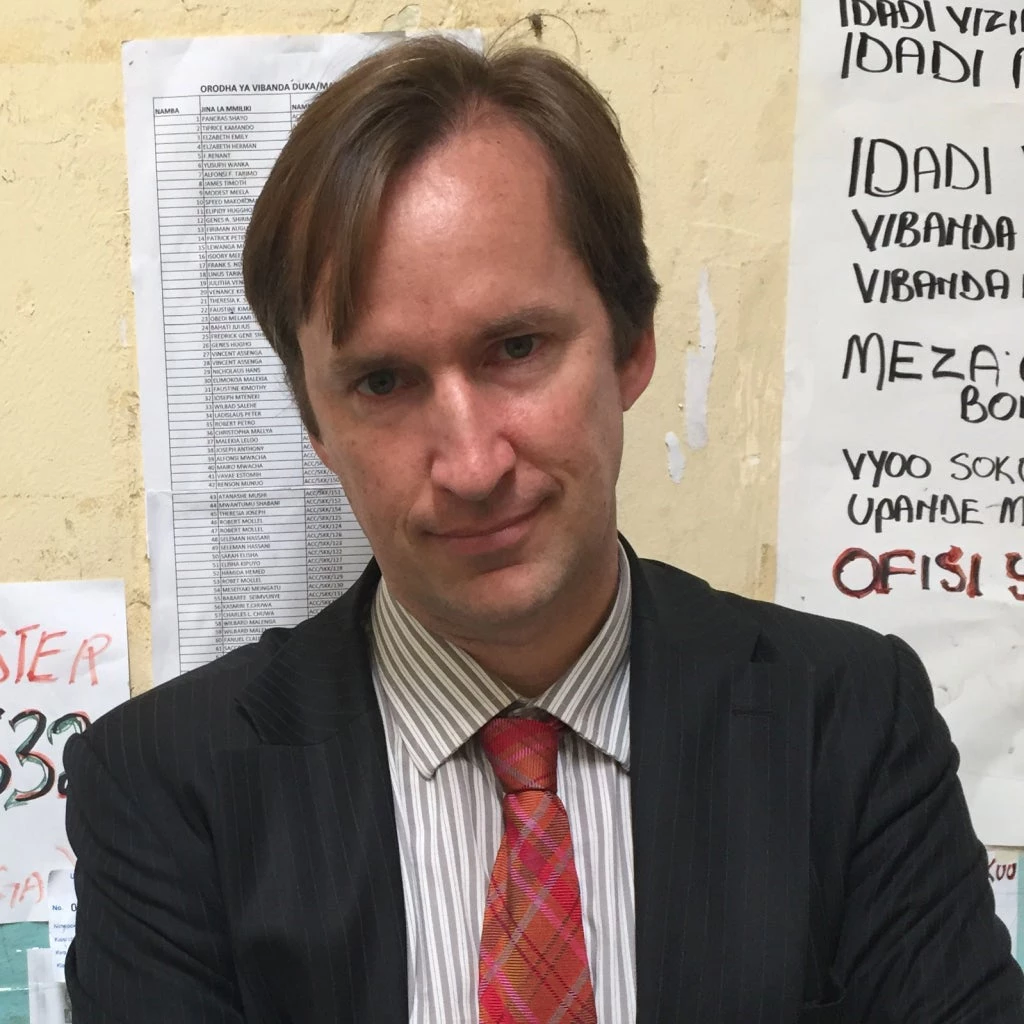Much of the media coverage of children during West Africa’s Ebola epidemic has been focused on orphans. Repeatedly, we have read heartbreaking stories of children who have lost parents to the disease and even been rejected by their communities. These children deserve our attention: We know that losing a parent has both short-term and long-term impacts. Evidence from Kenya, South Africa, Tanzania, and across Africa demonstrates significant reductions in educational outcomes for orphans in the short run. Evidence from Tanzania shows that adverse education and health effects persist into adulthood.
But just how many of these orphans are there likely to be? News stories have varied dramatically in their estimates, from 500 to 25,000 reported over the course of just one month. The most recent estimates from UNICEF suggest that 16,600 children under age 18 have lost either a parent or a primary caregiver. In a new letter in the Lancet and a more detailed working paper, we combine available data on the gender and age distribution of cases and mortality from Ebola (from the WHO), the number of living children for adults (from Demographic & Health Surveys, or DHS), and data from a previous Ebola outbreak on the probability of infection for spouses and children of Ebola patients to infer the number of children orphaned to date by Ebola in the three most affected countries. Using this method, we estimate that across Guinea, Liberia, and Sierra Leone more than 9,600 children under age 15 – the most vulnerable of children – would have lost one or both parents to Ebola and that about 600 of those would be double orphans.
Almost 10,000 orphans is a lot of bereaved children. We then combine those results with DHS and population data on the total number of orphans (for non-Ebola causes, such as accidents and other diseases) to see whether these numbers are likely to overwhelm extended family networks, the traditional care provider to orphans in the region. What we find is that about 8% of total under-15 children were orphans before Ebola came along. The Ebola orphans increase that to about 8.1%. (If one did the same calculation with the higher UNICEF orphan numbers, the total would be 8.2%.) Cross-country evidence suggests that extended families around Africa have absorbed much larger increases in orphans. Indeed, the most recent UNICEF report suggests that less than 3% of Ebola orphans have been placed outside of their communities. Despite being placed, these children will continue to need support so that they can enjoy fruitful, happy lives despite the grief of lost parents.

need support in the wake of Ebola!
So plan to provide support for those orphans. But also plan to help the children of Guinea, Liberia, and Sierra Leone more broadly to recover from what is both a health and an economic emergency.




Join the Conversation